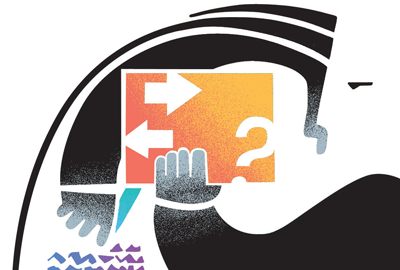Warm-Up for Reading and Writing Assessments

Reading is the process of turning 26 letters and a dozen punctuation marks into meaning. Viewed that way, it's almost a form of magic. You decode symbols and transform them into thoughts. But how did those symbols get there in the first place? Writing, of course. Someone had a set of insights and rendered them on the page using just 26 letters and a dozen punctuation marks. The encoding process of writing is just as magical and powerful as the decoding process of reading.
Reading and writing help you learn and think about any subject. They let you succeed in high school, college, and career. Not surprisingly, these skills loom large in all of the key assessments you take now and into the future: the Common Core assessments for high school English, the ACT and SAT, and the AP English assessments. Don't worry. Reading and writing might seem like magic, but you can practice these skills using the specific strategies in this unit. They will help you succeed on assessments and launch into a bright and thoughtful future.
What Is Assessment?
Listen to "What Is Assessment?"
Hide audio
The word assess means to "judge the value" of something. It originally meant "sit beside a judge" to determine the value of a piece of property for tax purposes. In its modern sense, an assessment is a test to measure the value of a set of skills, in this case reading and writing. You've been reading and writing from your earliest days in school, and all that work will help you succeed on the coming assessments you will face. You can also hone your skills with the specific strategies in this unit.
In the following activities, you’ll learn about close reading—reading to understand the thesis statement, topic sentences, details, and vocabulary of the nonfiction texts you’re assigned. You’ll also learn about writing for assessment—writing to express your own ideas during a test. Strong reading skills help you write and vice versa.
In this unit, you’ll learn the reading and writing skills that you need to succeed in nonfiction assessment. If you’d like to use these skills on a simulated assessment, see the unit “Practice Test for Reading and Writing.”
Thinking About Close Reading
To read closely, you need to think about the ideas in a text. You can do this by asking and answering questions:
- Who wrote this text? Who was meant to read it?
- What is it about?
- Why did the person write it (to provide information, to argue for a position, to tell a story, to make people laugh or think)?
- How does the writer communicate the ideas in the text?
- Where and when did this text originally fit? Where and when does it fit now?